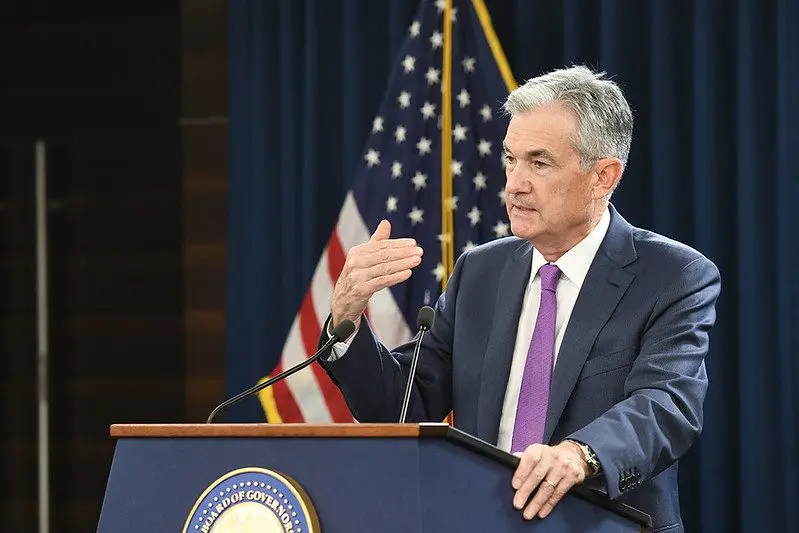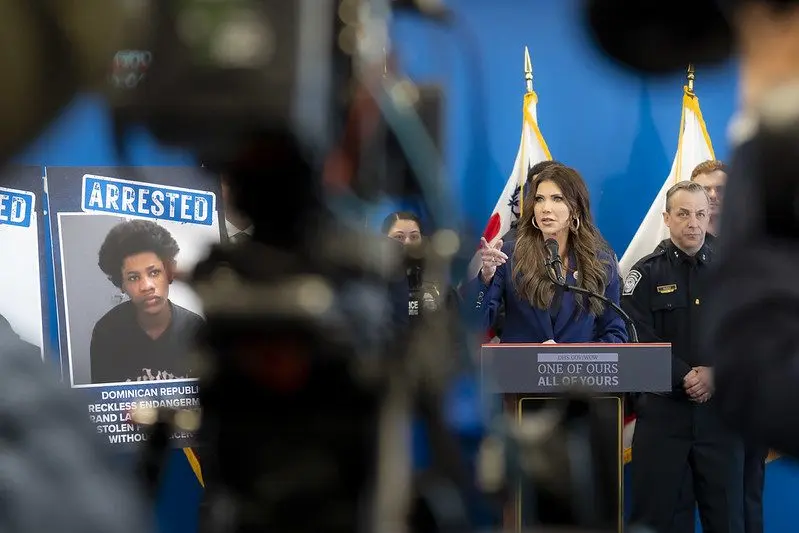UTAH – A federal judge this week sided with a small, Provo-based faith group that incorporates psychedelic mushrooms into its spiritual practices in a lawsuit putting Utah’s new religious freedom law to the test.
Bridger Jensen, who opened the Singularism Spiritual Center in 2023, is suing Utah County and its attorney, Jeffrey Gray, as well as Provo City and several members of its police department, after officers carried out a search warrant last November and seized psilocybin, the psychedelic component in mushrooms.
Law enforcement in Utah County, Jensen argues, violated several constitutional rights related to religious expression when they conducted the seizure — and, the lawsuit contends, they violated the state’s newly enacted Utah Religious Freedom Restoration Act.
Utah County asked the court to dismiss the lawsuit, but on Monday, Judge Jill Parrish, a federal judge for the Utah District, rejected the motion, writing in her ruling that the county’s claims were at times “ludicrous” and bordering on “disingenuous.”
In her ruling, Parrish also ordered Utah County to stop all criminal proceedings against Jensen and his faith group until the lawsuit is settled.
“The prosecution has already caused Singularism to lose many of its practitioners and affiliates, and forcing Plaintiffs to wait until the conclusion of the criminal proceedings to secure their free-exercise rights would be the equivalent of issuing a death warrant for their nascent religion,” Parrish wrote.
The Utah Religious Freedom Restoration Act
Jensen’s lawsuit hinges, in part, on a law passed last year codifying federal religious freedom practices.
In 2024, the Utah Legislature passed SB150, which prohibits a government from “burdening” a person’s right to exercise religion — that includes making it easier to sue a government entity if they restrict a person’s religious freedom.
The bill mirrors the federal Religious Freedom Restoration Act, approved in 1993 to allow federal regulations that clash with religious beliefs to be challenged
“It’s designed to make sure religious rights, and especially minority religious rights, are protected 20 years from now,” said bill sponsor Sen. Todd Weiler, R-Woods Cross, on the Senate floor in 2024. “This is not a bill for any one church or any one religion, it is to codify in our code if the government is impeding on someone’s sincerely-held religious beliefs that they’re going to have to show and meet the highest constitutional standard to do so.”
That same language is found in Jensen’s complaint, filed in November, where he’s described as the “founder of a small, entheogenic minority religion” whose “sincere religious exercise” involves giving willing patrons tea with psilocybin.
“Entheogenic” refers to the use of psychoactive substances in a spiritual or religious context.
Religions using banned substances in their spiritual practices is nothing new in Utah. Former Utah Republican lawmaker Steve Urquhart started The Divine Assembly in 2020 which, like Singularism, has a strong emphasis on psychedelic mushrooms. Native American churches, including the Oklevueha Native American Church in Spanish Fork, have entheogenic practices, according to Jensen’s complaint.
Provo police carry out search warrant, seize psilocybin
Jensen opened the Singularism Spiritual Center in Provo in 2023, which he advertised as “Healing. Safe. Legal” and “designed to unlock new possibilities in a supportive, legal environment,” according to court documents.
The center offered participants, called “voyagers,” psilocybin tea. They were then supervised in a “private, controlled, safe and comfortable environment,” according to the lawsuit. Jensen’s attorneys say none of the psilocybin ever left the spiritual center.
In the complaint, Jensen says he sent a letter to local government officials, including the Provo Police Department and Utah County Attorney’s Office, informing them of their psilocybin use and inviting them to tour the spiritual center.
They never took him up on the offer, according to the lawsuit. Instead, in November 2024, Provo police officers carried out a search warrant, seizing the group’s psilocybin and records related to personal spiritual experiences, which Jensen called “sacred scripture.”
“Although the seizure of Singularism’s sacramental psilocybin was difficult to endure, seizure of this sacred scripture was even more devastating,” Jensen’s lawsuit reads.
Police did not arrest Jensen, but did tell him to expect criminal charges and recommended he cease Singularism-related operations. In December, he was charged with possession of psilocybin with intent to distribute, a second-degree felony, and possession of THC and drug paraphernalia, both class B misdemeanors, according to documents filed in Utah County’s 4th District Court.
Jensen sues, citing religious freedom laws
On Nov. 19, about a week after Provo officers carried out the warrant, Jensen filed a lawsuit in federal court accusing the department and the Utah County Attorney’s Office of violating his First and Fourth Amendment rights, as well as his rights granted by the Utah Constitution. And, Jensen argues, the seizures ran afoul of the newly-signed Utah Religious Freedom Restoration Act.
The act states that governments cannot burden a person’s ability to exercise their religion, unless it’s “essential to furthering a compelling governmental interest.”
Prohibiting Jensen and his faith group from using psilocybin “is not essential to furthering any compelling government interest,” according to the lawsuit.
“The U.S. Supreme Court, Utah Supreme Court, and the Utah Legislature has repeatedly recognized that religious free exercise is a fundamental right which merits protection and that there exist circumstances, both religious and secular, in which entheogenic substances are a public good,” the complaint reads.
Jensen’s suit asks the court to declare the police department and county attorney’s actions unconstitutional and in violation of the Utah Religious Freedom Restoration Act, have all seized items returned to the spiritual center, stop the attorney’s office from prosecuting the group, and require them to compensate the group for losses related to the ordeal.
Utah County filed a motion to dismiss the lawsuit in December, writing that courts have rejected the idea that the First Amendment supersedes the Utah Controlled Substances Act.
Plus, since the Utah Religious Freedom Restoration Act was enacted so recently, no court has been able to issue an option mentioning or citing it. The act “presents several unsettled, never-before-addressed questions of state law,” reads the motion to dismiss.
But in her ruling handed down this week, Parrish rejected the arguments from the county.
This article was first published by the Utah News Dispatch, part of States Newsroom, a nonprofit news network supported by grants and a coalition of donors as a 501c(3) public charity. Utah News Dispatch maintains editorial independence. Contact Editor McKenzie Romero for questions: info@utahnewsdispatch.com.





